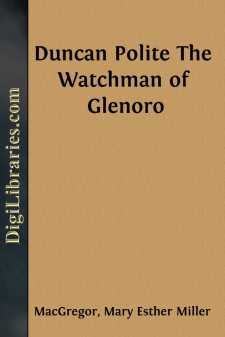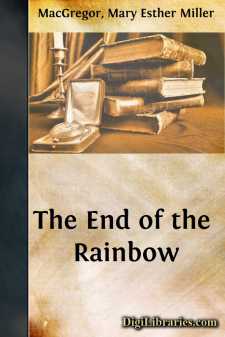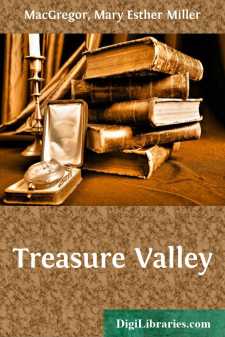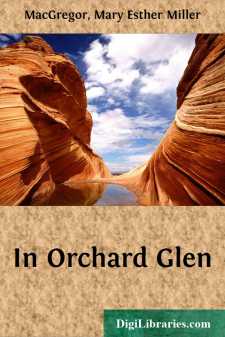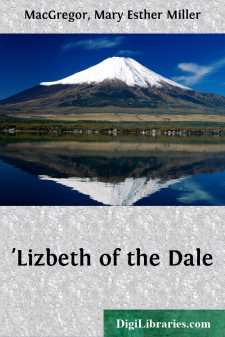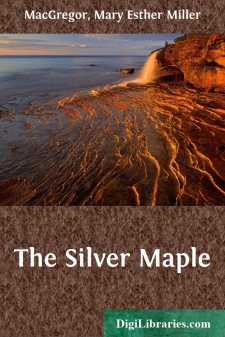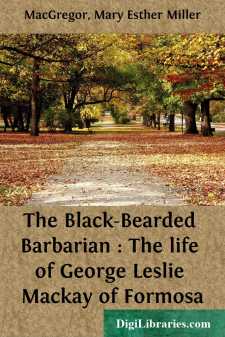Categories
- Antiques & Collectibles 13
- Architecture 36
- Art 48
- Bibles 22
- Biography & Autobiography 813
- Body, Mind & Spirit 142
- Business & Economics 28
- Children's Books 17
- Children's Fiction 14
- Computers 4
- Cooking 94
- Crafts & Hobbies 4
- Drama 346
- Education 46
- Family & Relationships 57
- Fiction 11829
- Games 19
- Gardening 17
- Health & Fitness 34
- History 1377
- House & Home 1
- Humor 147
- Juvenile Fiction 1873
- Juvenile Nonfiction 202
- Language Arts & Disciplines 88
- Law 16
- Literary Collections 686
- Literary Criticism 179
- Mathematics 13
- Medical 41
- Music 40
- Nature 179
- Non-Classifiable 1768
- Performing Arts 7
- Periodicals 1453
- Philosophy 64
- Photography 2
- Poetry 896
- Political Science 203
- Psychology 42
- Reference 154
- Religion 513
- Science 126
- Self-Help 84
- Social Science 81
- Sports & Recreation 34
- Study Aids 3
- Technology & Engineering 59
- Transportation 23
- Travel 463
- True Crime 29
Mary Esther Miller MacGregor
Mary Esther Miller MacGregor, often writing under the pen name Marian Keith, was a prolific Canadian author born on August 27, 1872, in Rugby, Ontario. She authored over 20 novels, many of which were inspired by her Scottish heritage and rural Canadian upbringing, focusing on themes of community, family, and morality. Her works, such as "The Silver Maple" (1906), are celebrated for their vivid portrayal of pioneer life and the development of Canadian identity.
Author's Books:
Sort by:
THE COVENANT The morning sun was growing stronger as it rose higher. Collie, returning from driving his master's cow to the cool shade of the back pasture, felt its rays penetrate his shaggy coat. His tongue hung out as he padded swiftly up the garden path where already the dew was almost dried from the rows of marigolds and sweet William. He dropped with a sigh in the shadow of the old...
more...
THE GLEAM All afternoon the little town had lain dozing under the lullaby of a June rain. It was not so much a rain as a gentle dewy mist, touching the lawns and gardens and the maple trees that lined each street into more vivid green, and laying a thick moist carpet over the dust of the highways. And the little town, ringed by forest and lake, and canopied by maple boughs, had lain there enjoying it,...
more...
CHAPTER I THE HERMIT THRUSH SINGS Then twilight falls with the touchOf a hand that soothes and stills,And a swamp-robin sings into lightThe lone white star of the hills. Alone in the dusk he sings,And the joy of another dayIs folded in peace and borneOn the drift of years away.—BLISS CARMAN. Other years, by the time the mid-June days were come, the little brook that sang through John McIntyre's...
more...
CHAPTER I It was on Christina Lindsay's nineteenth birthday that she made the second Great Discovery about herself. The first one had been made when she was only eleven, and like the second it had proved an unpleasant surprise. It was midsummer holidays, that time when she was only eleven, and raspberry time too, and Christina and her brother Sandy were picking berries in the "Slash," a...
more...
CHAPTER I On the side porch of the gray stone house sat Miss Gordon, steadily darning at the eight pairs of stockings belonging to her eight nephews and nieces. The strenuous task of being foster-mother to the eight had long ago taught Miss Gordon the necessity of doing two things at once. At the present moment she was attending to three beside the darning, and had chosen her position with an eye to...
more...
IN THE VALLEY OF SHADOWS Like the great rest that cometh after pain,The calm that follows storm, the great surcease,This folding slumber comforts wood and plainIn one white mantling peace.—WILLIAM WILFRED CAMPBELL. The storm was over, the snow had ceased falling, and under its muffling mantle, white and spent with the day's struggle, lay the great swamp of the Oro. It seemed to hold in its...
more...
CHAPTER I. SPLITTING ROCKS Up in the stony pasture-field behind the barn the boys had been working all the long afternoon. Nearly all, that is, for, being boys, they had managed to mix a good deal of fun with their labor. But now they were tired of both work and play, and wondered audibly, many times over, why they were not yet called home to supper. The work really belonged to the Mackay boys, but,...
more...


